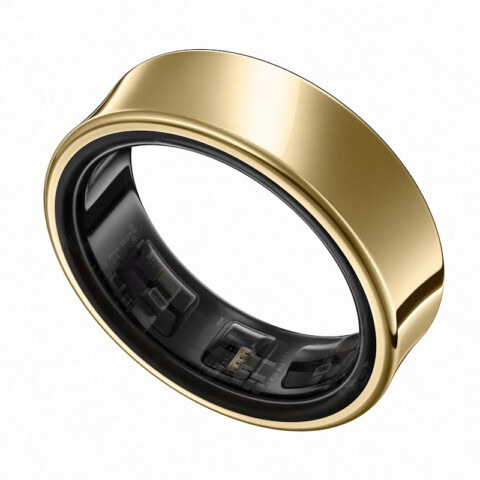As a web magazine with an emphasis on reviews, are we kidding ourselves? Do reviews even matter? DR RICHARD VAREY is a man who knows what he thinks.
 “Are reviewers and reviews necessary?” asked outspoken audiophile writer Roger Skoff in a recent Stereophile column. This got me reflecting on my own experience as a hi-fi enthusiast for four decades, and with a quarter century of in-depth sales and marketing experience, knowledge and research. What are hi-fi reviews for or, more importantly, who are they for? It seems that both enthusiasts and vendors like reviews, and publishers do too, as they provide attractive content for readers. But what do they contribute to the equipment selection process, and are they more than barely disguised product promotion?
“Are reviewers and reviews necessary?” asked outspoken audiophile writer Roger Skoff in a recent Stereophile column. This got me reflecting on my own experience as a hi-fi enthusiast for four decades, and with a quarter century of in-depth sales and marketing experience, knowledge and research. What are hi-fi reviews for or, more importantly, who are they for? It seems that both enthusiasts and vendors like reviews, and publishers do too, as they provide attractive content for readers. But what do they contribute to the equipment selection process, and are they more than barely disguised product promotion?
There’s a potential problem if reviews are overly favoured by sellers. Yes, reviewers and reviews are very valuable, if working for the user in providing a buffering link to otherwise difficult-to-access products, and bringing experience and knowledge to finding equipment by cutting through the “Disney dust” of partial sales promotion. But, if working for the vendor as disguised advertising that conceals the selling motive, or tries to, then no, they are not good for the buyer. This is a cunning (and increasingly hard to disguise) distortion of the buyer-seller relationship as they appear to be taking the buyer’s stance, but actually assert their assessments from the seller’s point of view! The seller will promote and emphasise the positives and minimise or evade the negatives, so a full story is rarely told.
But it isn’t always this way, and doesn’t have to be so.
The buyer, in risking limited funds and in pursuit of enhanced listening pleasure, wants the full story and a balanced assessment of value and risk, taking account of strengths and weaknesses, benefits and compromises, warts and all – so they can decide for themselves through informed judgement. The reviewer is a go-between whose motives may differ from those of the buyer, the seller, or both.
Why do brand/product managers like reviews? Simply because reviews are a channel to present products to buyers who are looking, from sources with reputations that convey credibility. Instead of taking the obviously self-interested claims of the seller, a third-party expert user can confirm and advise. Published reviews are also cheaper than competitive advertising. Vendors often get feedback on usability from experienced users with time and knowledge to carefully assess equipment. Sometimes reviewer experimentations, criticisms, and suggestions inspire product improvements.
In my own case, I write articles about my personal experience in using equipment to hear the reproduction of recorded music. I don’t write about the products per se. My reviews are unashamedly the subjective musings of a music enthusiast who sees the products as tools, not an end in themselves. I seek not to persuade, but to allow readers a sense of my viewpoint. I also serve readers by finding products they otherwise might not hear about.

A well-reputed reviewer can bring information and opinion, but there is no substitute for personal experience and judgement. Do you ever buy audio equipment without trying it? I once read a posting in a hi-fi forum from a guy who had ordered a US$60,000 pair of speakers. He was asking if anyone had heard them and thought they were a good buy. And they were about to be delivered to him! That is certainly not my recommended way to go about matching equipment to your listening situation and audio system.
Reviewers have a wider range of experience of different equipment than most end users, and will have been able to audition products comparatively, as well as having direct contact with designers and manufacturers – many have technical training, and can write engagingly.
But can reviewers be unbiased, and should reviews be unbiased? Is that always helpful? Humans, even reviewers, are always partial in some way. Reviewers may have a wider experience of using equipment and a trained ear for critical listening, as well as the ability to cogently express their opinions and assessments for readers, yet they are essentially go-betweens. They can’t really be fully independent of either party. They may champion a technology or a brand, or they may serve the hi-fi enthusiast as a kind of shopping agent, with some insider knowledge and past experience. Everyone has a point of view, a complex meld of their current and past situations, knowledge and experience, values and attitudes, and maybe even personality.
Perhaps we can judge reviewer personality from their writings and/or reputation in assessing whether or not to rely on the assessments of a certain person to help with finding viable options and final choice. Are they telling believable and readable stories that are worth listening to? Source credence/credibility of information is a well known aspect of informing and opinion. In a perversely ironic way, this was the original purpose of a brand – putting the name of the producer on a product so that customers would know what they are getting and from whom. Brands in practice have never been natural bearers of assuredly honest claims and fulfilment of promises. Trust me!
So it’s not sensible to take all reviews as equal, unbiased, factually correct, or true. The clever way to use reviews is to find the reviewers who talk and thus think like you do, and use their reviews as helpful advisories. Then go and listen to your familiar and cherished music with the equipment they recommend. In the end, you decide.
How do reviews get published? How likely is it that a negative review will appear in a magazine carrying paid product advertising? The reviews that get published are already an edited version of the mass/morass of product and service offerings. Like the view through a camera lens, only some of the landscape appears in the picture – it’s framed and filtered. Then the information and assessment can steer you to the small sub-set that seems worth seeking out for audition and comparison. Then you become the judge of performance quality and value for money. But make sure you make that call after careful audition, and not after payment and installation.
There are lots of reviewers, many of whom are highly reputed and respected, and some are more readable than others. They see their role as a corresponding user, reporter, assessor, critic, or advisor, or all of these. It’s important to appreciate their stance: are they paid, representative, or independent? Why do they review products? Are they enthusiasts, or really more like commercial representatives? Do you like the person behind the words?

Comments in forums show that many of us are sceptical on the objectivity and impartiality of reviewers – my advice is to find the one(s) you can rely on and to ask questions. Unlike retailers and mates they are removed from the profit motive and are diversely knowledgeable, but they are also distanced from you too. In life, and hi-fi is certainly no exception, always when possible deal with friends instead of strangers. These are the reviewers who take their respective responsibilities seriously, as well as provide a good read.
Do we really need objective reviews? Reading boring factual accounts doesn’t add much to dealing with the real problem of finding suitable equipment. Good reviewers have insights they can share responsibly by not telling only the good part of the story and by challenging. Their inevitable bias is tempered with experience and in-depth knowledge and reflective understanding, and by standing in the shoes of the reader, firmly informing with empathy and without imposing their own perspective. Find reviewers with similar tastes and opinions to yours, those who could be a “friend” because they are like you and thus attractive. Good (effective) reviewers are true to themselves – they clearly articulate consistent, reasoned opinion, substantiated facts and justified assertions, drawing on relevant experience. They are also responsible to their readers – they contextualise their assessments and show no favour beyond the quality of the product and their experience in use. I don’t think all reviews have to be ‘objective’. After all, what does that mean in the subjective realm of music appreciation? What reviewers should do is declare any interests and acknowledge their biases. In today’s online forums, reviewer reputation is easily revealed and reviewed.
Critical reviews, and reviews that expose problems, can be learning opportunities for all concerned – reader, vendor, and reviewer. The very existence of a review in itself, or the absence of a review, tells us something powerful about the viability and credibility of a product and vendor. Why would a reviewer write and publish a scathingly negatively critical review? Publication of a review is selectivity in action.
For me, it’s more a question of how to use reviews than it whether or not we need them. If we didn’t have carefully written reviews, how much more difficult, if not impossible, would it be to find the right product for your listening needs? Where would you start? Where might you end up?
Do we need professional reviewers and reviews? The answer, of course, is very much in the affirmative. DR RICHARD VAREY
* Dr Richard Varey writes about the electro-mechanics and the social psychology of this technology-facilitated art we call high-fidelity music reproduction.















Well said Richard
it is a tough one as we live in a “15 second sound-bite” world, which creates ubiquitous – 4 paragraph reviews on websites or “lightweight” 30 second, movie reviews on television.
My thoughts would be not to offer a “star” or “number” ratings for a product. simply write a detailed review which outlines your pro’s and con’s on the product and let the reader make their own decision. Provided you declare any “conflict of interest” and outline your own musical/artistic preferences, many readers will appreciate the effort.